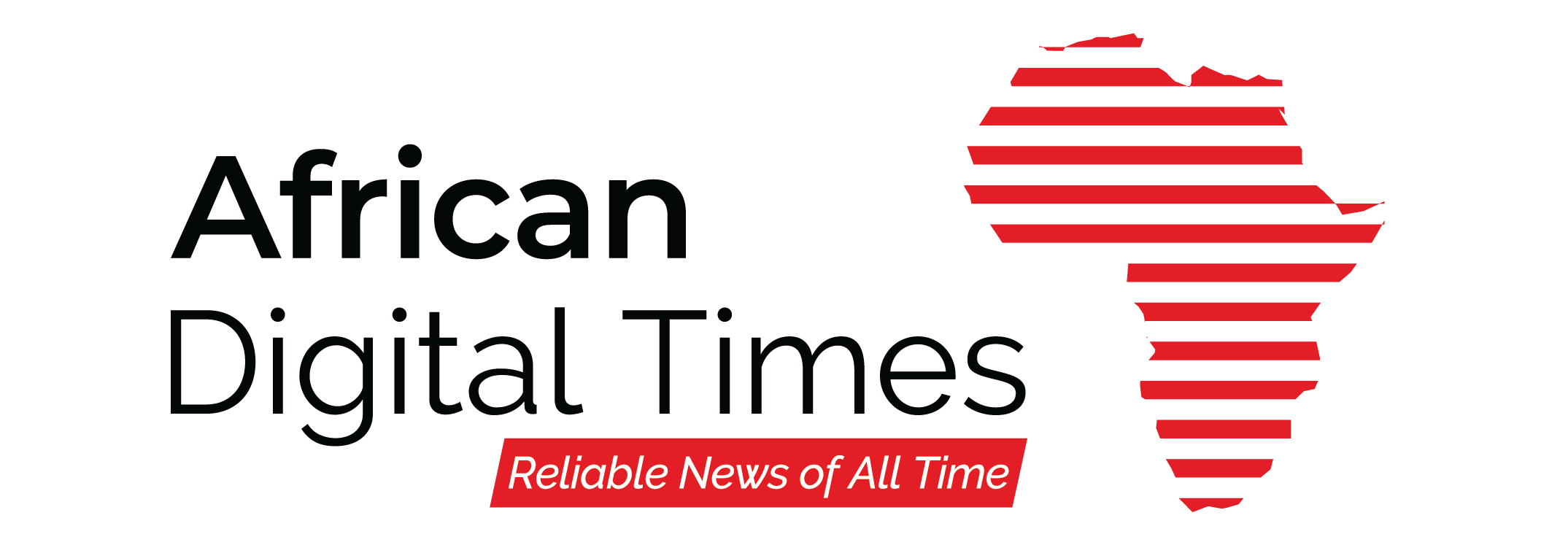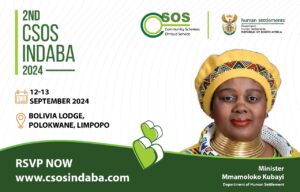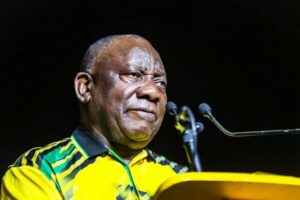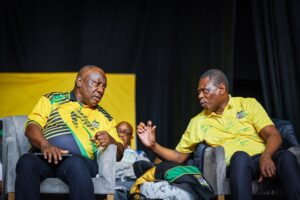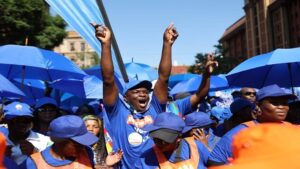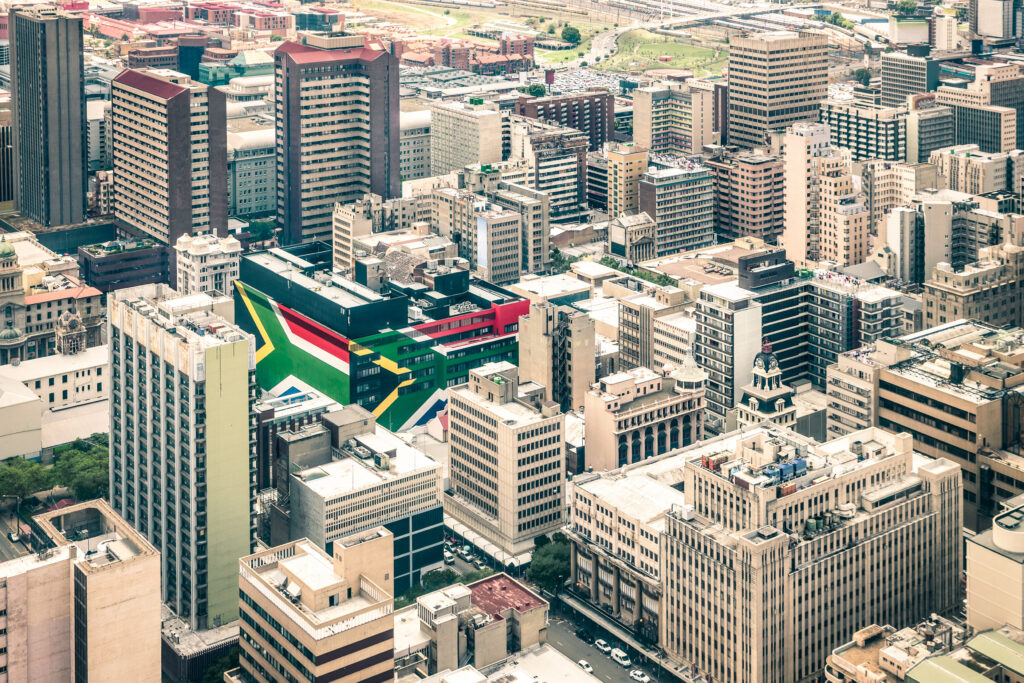
Close up detail of skyscrapers the business district of Johannesburg - Aerial view of modern buildings of the skyline in South Africa biggest city with southafrican flag painted on structure walls
South Africa is defined by the World Bank as a lower middle-class income country. There are a few upshots of high-performance indicators that place the country into this category, as measured by the World Bank’s open data framework. For instance, South Africa registered the highest foreign direct investment net inflows amongst its peers in 2023.
Close to about 72% of our population has access to and uses the internet. There is a reasonable amount of the population having access to safely managed sanitation services, annual freshwater withdrawals, and a staggering more than 85% having access to electricity.
However, there are a few indicators that remain stubborn and therefore dragging the country down in areas such as high levels of unemployment, and uncontrollable crime levels resulting in higher homicide rates and stagnant economic growth. These three impediments have been the biggest issues that contributed to the electorate voting with their feet in terms of denying any political party a decisive majority to run the country.
The ANC government registered solid economic growth during Thabo Mbeki’s GEAR policy years, which was ferociously opposed by its alliance partners the SACP and COSATU who represented the left. Their arguments were reasonable at the time, there was growth but it was not complimented by high employment growth.
The alliance partners also viewed the ANC as being dominated by the neoliberal forces who preferred market fundamentals to economic growth, therefore, promoting privatization, liberalization and concessionisation of key state-owned companies that resulted in job cuts, labor outsourcing and casualisation.
Post the Thamani Mbeki golden period of economic growth, the ANC pivoted towards establishing a developmental state, characterized by a central planning commission that would have given the state a higher capacity to direct and discipline capital markets in terms of which direction to invest in. This resulted in more market doubts and loss of confidence in terms of the invisibility of the country. Growth declined significantly and further pushed unemployment higher and increased inequalities and multiple unintended consequences of serious instabilities in society precipitating the country towards a potential calamity of state failure.
There is no coherent economic policy thrust in the ANC, perhaps because of the ANC as a liberation movement maintains the ideological posture of a broad church. This has led to many internal contestations for the control of the ANC. The rise of Cyril Ramaphosa has ushered in a clear open indication that the ANC of today while appreciating its liberation movement character, is remaining a central organization that appreciates the roles of markets in driving economic growth and job creation as well as personal wealth creation for individual citizens.
After losing the 2024 historic elections, the ANC entered into negotiations with other political parties mostly on its right to establish the Government of National Unity (GNU), characterized by a progressive statement of intent that places constitutionalism as the paramount guiding principle. This has resulted in the ANC’s appliance partners raising dissatisfactions but overall agreeing that the current parties in the GNU are sufficient to form the government of the 7th administration.
The first activities of the GNU have taken place wherein the legislature was constituted. The president was elected, and the president has formed a government with ministers coming from an array of parties in the GNU. Post the GNU’s first cabinet lekgotla the various ministers presented budget votes of their portfolios and so far it looks like the country may be back to those golden years of economic growth under former president Thabo Mbeki.
Key amongst the macroeconomic policy of this GNU is the focus on economic growth and radical as unconventionally super urgent action to reduce unemployment, particularly of the youth in their townships and rural areas. Liberalisation of key network industries such as transport, water, and electricity could usher in massive growth of SMEs that will fuel employment and deployment of private capital.
The president, as the head of this GNU, seems to have struck the right cord in appointing ministers like the measured and diplomatic Velinkosini Hlabisa to lead cooperative governance which could be the center of uniting government across all spheres. The president now needs to focus more on establishing a platform for social cohesion and mobilization of all societal forces to materially commit to the vision of the GNU and encourage state capacity to continue on service delivery around key areas such as social infrastructure, peace, national security, social order, and stability.
